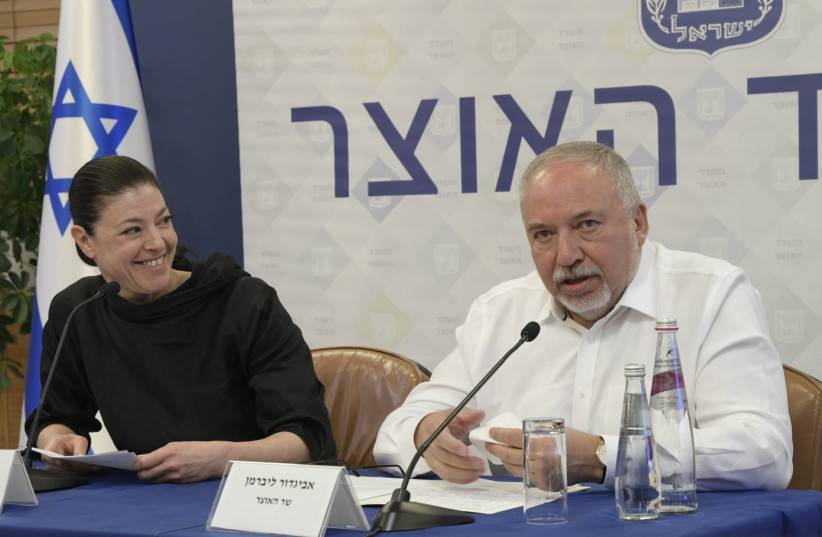Several Israeli ministers, including Prime Minister Naftali Bennett, voiced their outrage after the long-awaited Metro Bill was left out of agreements reached with the opposition on Monday night.
A line of bills was approved in discussions between opposition and coalition officials, to be passed in the first, second and third readings in the Knesset prior to its dispersal, which was set for "no later than Wednesday night."
The Metro Law must pass before the Knesset is dispersed, Bennett wrote on Twitter late on Monday. "Israel is a modern country without a metro like in New York, Paris, or London; this is why we suffer from endless traffic jams," he wrote.
"This isn't about Right or Left...no one will get 'credit' from the public for passing this bill," the prime minister added.
The Likud Party reportedly objects to the bill as they are reluctant to give the coalition accomplishments to boast about.

"If the bill isn't passed now, it will be delayed by several years and our children will be the ones to pay the price," Bennett warned.
What is the Metro Law?
If passed, the bill will set a framework for expanding Tel Aviv’s budding light-railway network into a subway system.
The public transport project, the largest in Israel's history, will include 90 miles (145 km) of underground rail lines going through 24 cities.
It has been criticized for its cost, with some believing the Finance Ministry's financing scheme for the massive NIS 150 billion ($44 b.) plan to be "deeply flawed."
Final government push
Transportation Minister Merav Michaeli and Finance Minister Avigdor Liberman called on the Knesset to pass the bill as soon as possible.
Michaeli warned against some of her coalition partners "giving in" to the opposition, writing that they will have to provide answers to the public.
"They will have to give answers on why the national project to end traffic jams was stopped by petty politics," the minister tweeted.
It is reported that Michaeli's anger is directed toward Foreign Minister Yair Lapid and coalition chairman MK Boaz Toporovski, both of Yesh Atid, who are in charge of negotiations with the opposition on behalf of the coalition.
Liberman, on the other hand, accused the haredi (ultra-Orthodox) factions of extortion and warned that prior investments worth billions of shekels will be "in vain" if the law is not passed.
"Failure to pass the law will be a fatal blow to the development of Israel and all its citizens," the finance minister said.
"Failure to pass the law will be a fatal blow to the development of Israel and all its citizens"
Finance Minister Avigdor Liberman
